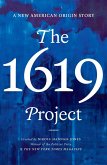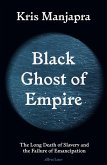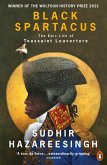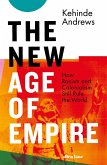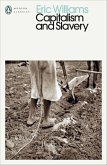The Age of Revolution (1776-1848) destroyed the main slave regimes of the Caribbean but a 'Second Slavery' surged in the US South, Cuba and Brazil, powered by demand for plantation produce and a system of financial credit that leveraged the value of the slaves. By 1860, more than 6 million captives of African descent toiled to produce the cotton, sugar and coffee craved by global consumers. This 'Second Slavery' mimicked capitalist disciplines, intensified slavery's racial character and launched half a century of headlong economic growth.
On the eve of the American Civil War, the Slave Power seemed invincible. The slaveholding elite entrenched their 'peculiar institution' in the fabric of the Union only to risk everything on secession. Nobody solicited the slaves' wishes until it became clear that, wherever they could, they were deserting the plantations and joining the Union forces.
Abolition radicals destroyed the Second Slavery and victory for the North also spelled defeat for slavery in Cuba and Brazil. But in each of these societies racial oppression was to be reconfigured by 'Black Codes', Jim Crow and toxic doctrines of racial destiny.
Slavery leaves an indelible mark on many Atlantic nations. The Reckoning charts the historic impact of slavery and anti-slavery, of black and white activists, of fugitive slaves, feminists, writers, clerics and soldiers. Notwithstanding much unfinished business, the anti-slavery struggle retains its capacity to illuminate and inspire.
On the eve of the American Civil War, the Slave Power seemed invincible. The slaveholding elite entrenched their 'peculiar institution' in the fabric of the Union only to risk everything on secession. Nobody solicited the slaves' wishes until it became clear that, wherever they could, they were deserting the plantations and joining the Union forces.
Abolition radicals destroyed the Second Slavery and victory for the North also spelled defeat for slavery in Cuba and Brazil. But in each of these societies racial oppression was to be reconfigured by 'Black Codes', Jim Crow and toxic doctrines of racial destiny.
Slavery leaves an indelible mark on many Atlantic nations. The Reckoning charts the historic impact of slavery and anti-slavery, of black and white activists, of fugitive slaves, feminists, writers, clerics and soldiers. Notwithstanding much unfinished business, the anti-slavery struggle retains its capacity to illuminate and inspire.
Dieser Download kann aus rechtlichen Gründen nur mit Rechnungsadresse in A, D ausgeliefert werden.




